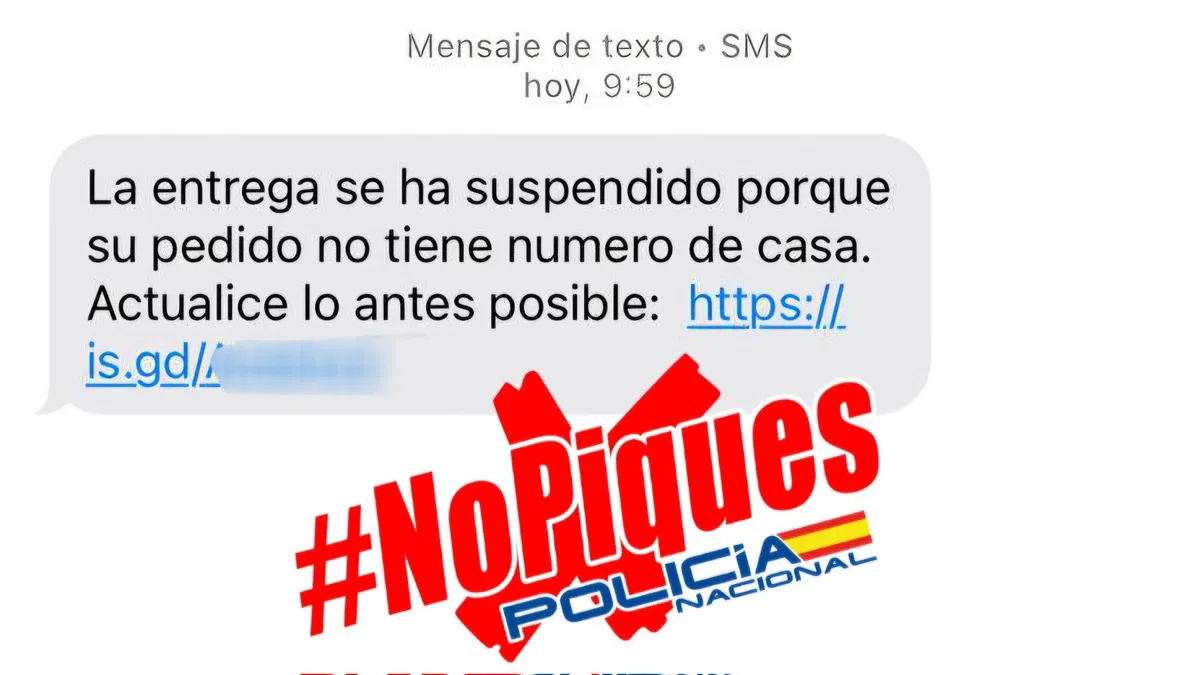Copyright euroweeklynews

If you’ve recently received a text or email saying your parcel couldn’t be delivered, you might have just been targeted by one of Spain’s fastest-growing online scams. The Spanish National Police have issued a warning about the ‘undelivered package’ fraud, a scam that’s been tricking people across the country into revealing personal and banking information. Cybercriminals are once again pretending to be from well-known delivery companies, using believable messages to lure victims into clicking dangerous links. How the ‘undelivered package’ scam catches victims It starts innocently enough. You get a message claiming a parcel couldn’t be delivered because your address or house number was incomplete. There’s usually no company name, no tracking number, and no details about what’s supposedly inside. But the message feels urgent – and that’s the whole point. At the bottom, there’s a link asking you to ‘confirm your address’ or ‘arrange redelivery’. Click on it, and you’re taken to a fake website that looks identical to a real courier company’s page. Once there, you’re asked to enter your full name, address, and even credit card details to pay a small ‘delivery fee’. That’s when the real damage begins. The information doesn’t go to a courier – it goes straight to the scammers. The National Police have warned users not to fall for this tactic, reminding everyone that delivery companies never ask for payments or personal data via text links. Their advice is simple: if you’re sure you typed your address correctly when placing an order, don’t click the link – delete the message immediately. Cybercriminals getting smarter Police say these scams are becoming more sophisticated and increasingly difficult to spot. Messages are written in perfect Spanish, the branding looks authentic, and even the web addresses can appear genuine at first glance. The group behind this latest wave of frauds has been sending phishing messages in bulk, targeting thousands of users at once. Their goal? To flood inboxes and phones, hoping at least a few people will take the bait. Authorities confirm that some local administrations and private companies have already reported attempts to imitate their websites, although most attacks have been stopped before causing major harm. Spain’s cybercrime division continues to monitor the situation, using advanced tools to detect and block these threats as quickly as possible. Online betting scams also on the rise The ‘undelivered package’ fraud isn’t the only scheme worrying authorities. The Ministry of Consumer Affairs revealed that in 2024, there were more than 7,700 reports of identity theft related to online betting, and around 90 per cent were connected to sports gambling. Victims often find out when they receive tax notices for winnings they never earned, as scammers use stolen IDs to create fake betting accounts. These schemes come in many forms – fake betting sites, fraudulent apps, “guaranteed win” systems, and other traps promising easy money. Experts recommend checking whether a betting platform is officially licensed in Spain, never clicking on links sent via social media or text, and using strong passwords to protect accounts. How to protect yourself Police and cybersecurity experts agree on a few golden rules to stay safe online: Ignore unexpected delivery messages, especially those asking for payments. Check the sender’s details carefully — even a small change in the web address can reveal a scam. Go directly to the company’s official website instead of clicking on links. Report suspicious messages to Spain’s Oficina de Seguridad del Internauta (OSI) or your local police. Online scams are becoming part of daily life, but awareness remains the best defence. As police put it: sometimes, the best package you can receive is the one that never arrives. Stay tuned with Euro Weekly News for more news from Spain



